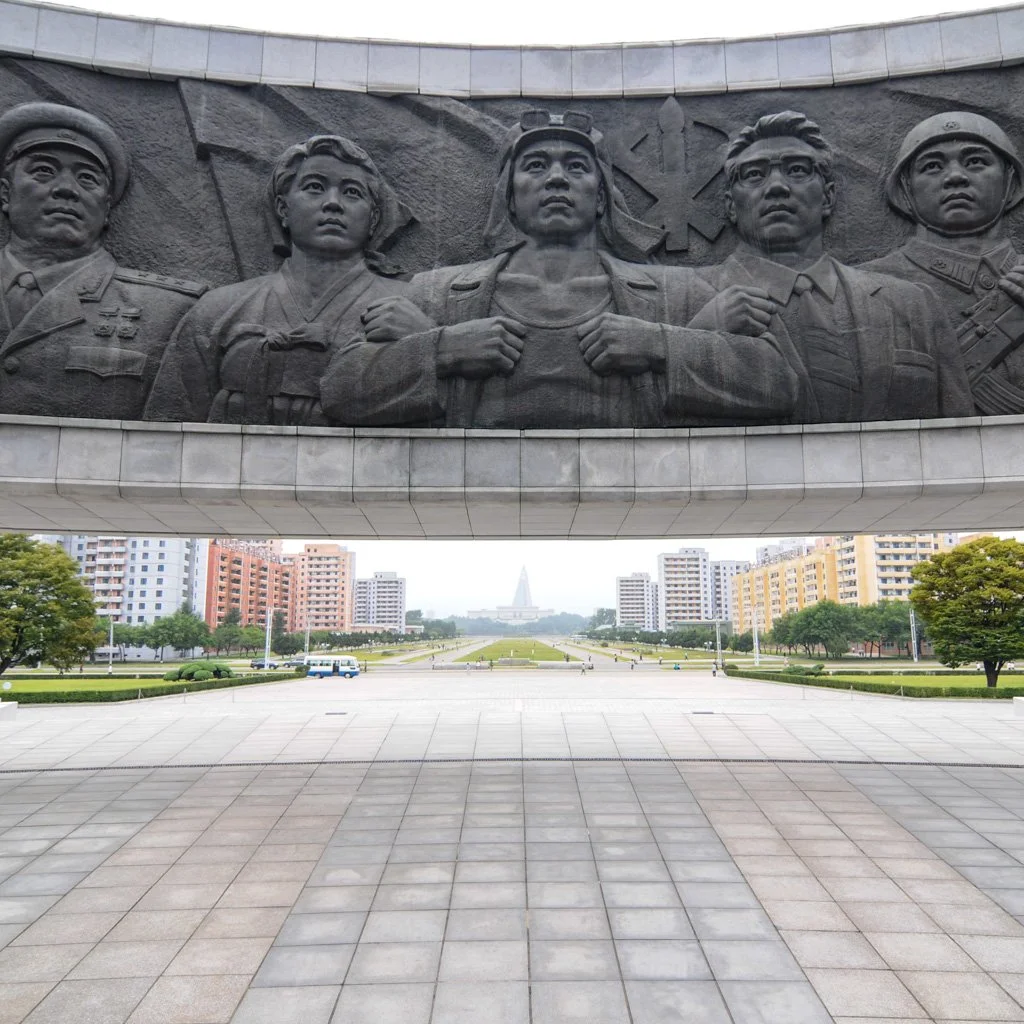One of our aims is to provide opportunities for North Korean students to study abroad. In 2009, we were working on sending students to attend international conferences. There was some interests from conference organizers but some organizers insisted that the students apply through their online application system (which North Koreans cannot access) and write their applications on topics that were irrelevant in a North Korean context (and which we did not feel comfortable pushing for as we did not know what possible repercussions this might have on the students).
For some other students, the sponsorship provided by the conference organizers could not cover the full transport costs for the students. We are still negotiating with different conference sponsors. This is possible, although it still surprises many people when they hear about this. Aside from China, Vietnam or Russia, North Koreans study in a variety of countries in a range of programs. I have compiled some of such exchanges below. This list is by no means exhaustive and are extracted from Tim Beal's website.
If your institution is looking into sponsoring North Koreans to study abroad, please contact our team!
In 2010:
Seoul to support U.N project to train North Korean technicians
SEOUL Jan 19 South Korea plans to contribute 1.88 billion won (US$1.67 million) this year to a U.N. project to help train North Korean officials and technicians, a government source said Sunday. The project, to be undertaken by the Economic and Social Commission for Asia and the Pacific (ESCAP), will invite an unspecified number of North Korean bureaucrats, involved in energy, environment, transportation and regional cooperation, to overseas training programs, the source said. Established in 1947 with its headquarters in Bangkok, ESCAP is the regional development arm of the United Nations, with 62 member countries. The Seoul government will use its inter-Korean cooperation fund for the contribution, the source said, requesting anonymity. The training program for this year is scheduled to start late this month in India, the source said. [Training]
How Diversity Took 2 Asian Universities to the Top
Lee Hang-su There was a rumor recently circulating among South Korean students at the University of Hong Kong that some North Korean students were studying there as well. Hearing the rumor, I contacted the university and confirmed that it was true. Three North Koreans started there in the 2009-2010 academic year, two of them giving North Korea as their country of origin on their application forms and the third being a dependent of a North Korean official stationed in Hong Kong. It is the first time in the university's 99-year history that North Korean students have been admitted, a university spokesman said. [Training]
Delegation from North headed to the United States
January 07, 2010 A delegation from a North Korean university involved in an exchange program with its American counterpart plans to fly to the United States later this month, Korea Society President Evans Revere said yesterday. Revere told Radio Free Asia that representatives from the Kim Chaek University of Technology in Pyongyang will be led by the school president Hong So-hon. [Training]
S. Korea gave Pyongyang officials market economy training in 2009: source
SEOUL, Jan. 8 (Yonhap) -- South Korea helped North Korean officials and trade experts receive up-to-date market economy training last year, a government source said Friday. The source at the Ministry of Strategy and Finance said 40 North Korean officials were taught about the stock market, supply of consumer goods, light industrial policies, international trade and intellectual property right protection at China's Dalian University in October and November. A research institute under the state-run Seoul National University provided the education program, which cost the South 220 million won (US$194,000). The official, who declined to be identified, said that the research institute selected training courses with input given by North Korean officials and a similar amount of money has been reserved in the 2010 budget to conduct similar programs this year. The ministry, however, said that South Korean officials were not directly involved in the training program. Despite the cooling off in bilateral relations after President Lee Myung-bak took power in early 2008, Seoul has provided assistance to help train North Korean computer experts, medical personnel and government officials as part of its effort to expand cross-border exchange and contacts. [Marketisation] [Training]
In 2008
# Democratic People’s Republic of Korea Railroaders Arrive in Vladivostok for Training
North Korean railroad representatives have already acquainted with port station Nakhodka Vostochnaia work VLADIVOSTOK, December 18, vladivostoktimes.com Railroader delegation from Democratic People’s Republic of Korea continues its training at Vladivostok department of Far Eastern railroad (Public corporation branch “Russian railroads”), press secretary of Vladivostok Far Eastern railroad department- public corporation branch “Russian railroads” head Alexander Artomonov reports. Guests from North Korea came to Vladivostok from Khabarovsk to have training. In Khabarovsk the delegation got acquainted with personnel training system on the Far Eastern railroad. They also visited locomotive depot Khabarovsk-2. The delegation includes employees of Democratic People’s Republic of Korea Railroad Ministry, foreign railroads and transport railroad company “Tonkhe” cooperation management. In Primorsky Territory the representatives of North Korean railroads examined the work of port station Nakhodka Vostochnaia, visited container terminal in Vostochniy Post and Nakhodka railroad facilities. [Railways]
Amazing Business Pioneer in North Korea (Felix Abt)
An Amazing Business Pioneer in North Korea is telling us the real reasons behind the sudden and surprising pull-out of a global engineering giant from this country
How a hopeless pharmaceutical joint venture was turned into a success story, why and how humanitarian aid and economic development mostly follow conflicting interests, how foreign business people challenge and survive an environment overshadowed by heavy geopolitical influences including arbitrary sanctions imposed by foreign powers, how North Korean managers prepare themselves to get fit for export and international competition, and what the dos and don’ts are for those who want to successfully start a business in this very special country. [IJV] [FDI] [Opening] [Sanctions] [Training]



